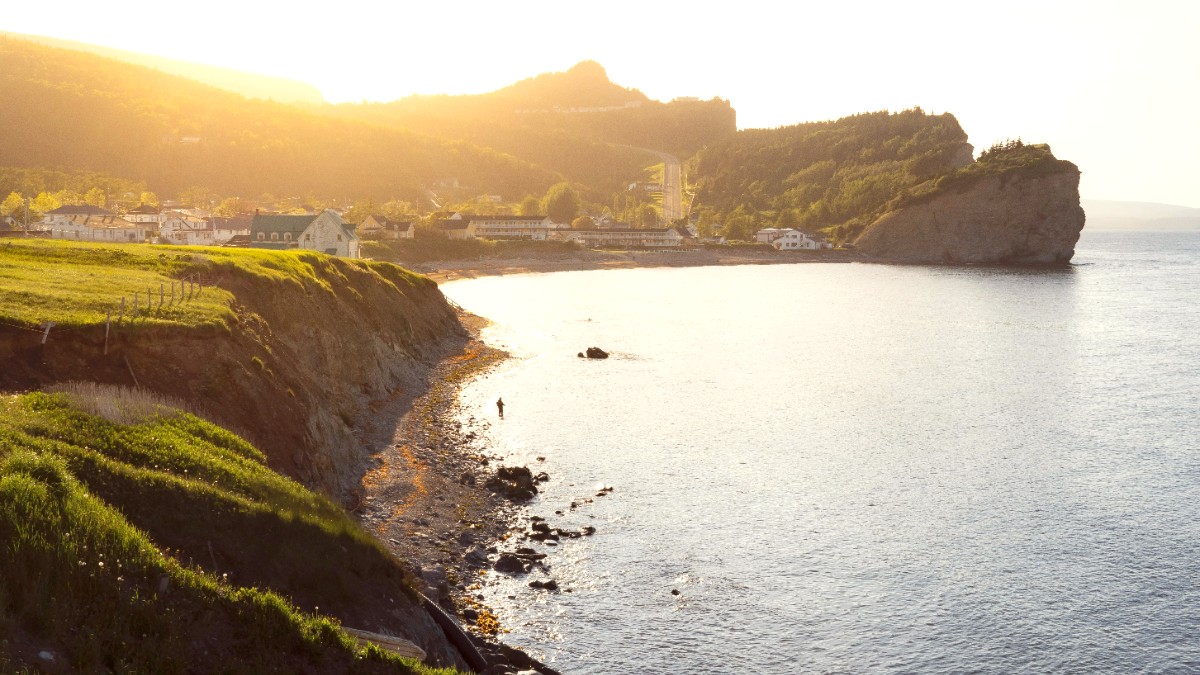
Canada
High Season (July-August): This period has the warmest weather, and all tourist attractions and services operate at full capacity. It is the peak time for whale watching, with high chances to spot marine species. Numerous local festivals occur. Water activities are enjoyable. Expect high visitor numbers at popular sites like Percé Rock and national parks. Prices for accommodation and rentals are at their highest. Booking accommodations, tours, and vehicles well in advance is highly suggested.
Shoulder Season (May-June, September-early October): Travelers during these months experience significantly fewer crowds. Temperatures stay moderate and pleasant for outdoor activities. Prices for accommodation often decrease. Early spring brings beautiful blooms and migratory birds. Early fall presents spectacular autumn foliage, making scenic drives especially rewarding. Some smaller services might have reduced hours or be closed. Weather can be more unpredictable, with cooler temperatures or early snow in the mountains during October.
This period appeals mainly to winter sports enthusiasts. The region transforms into a snowy wonderland, good for snowmobiling, cross-country skiing, and downhill skiing at locations like Mont Miller. Accommodation prices are at their lowest. The landscape presents a quiet, serene beauty, providing an unique perspective on the peninsula.
Many mainstream tourist attractions are closed. Very cold temperatures prevail, calling for extensive winter clothing. Limited road access to some areas occurs due to heavy snow, notably in the interior and northern parts of the Chic-Choc Mountains. Dining and accommodation options become sparse outside of major towns.
Entry needs vary by nationality.
Many citizens (US, UK, EU, Australia, etc.) do not need a visa for tourist stays up to six months. An eTA may be needed for air arrivals.
Citizens from non-visa-exempt countries must apply for a TRV. This process can take weeks or months. See official Government of Canada website.
For most visa-exempt foreign nationals arriving by air.
An online application process, electronically linked to your passport. Valid for up to five years or passport expiry. Apply through the official Government of Canada website well in advance. This process generally takes minutes.
Always carry a valid passport (valid for at least six months beyond departure). A printed eTA or TRV approval letter, proof of sufficient funds, and return or onward travel ticket.
Standard immigration procedures apply for all visitors.
Present passport and documents to a CBSA officer. Answer questions about visit purpose, duration, and accommodation. Customs declarations are also part of this process.
No general entry fees beyond the CAD $7 eTA application fee. TRV fees vary. No special permits for general tourism. Hunting or fishing may need licenses from Québec government or Parks Canada.
No specific vaccinations are required for Canada. Routine vaccinations are recommended (MMR, Tdap, polio, influenza). Consult a healthcare provider 4-6 weeks before your trip for personalized advice. Tap water is safe to drink. Food hygiene standards in restaurants are high.
The Gaspé Peninsula is a very safe region with low crime rates. Violent crime is uncommon. Secure your valuables, lock vehicle doors, and stay aware of your surroundings. No specific high-crime areas are present. Dial 911 for emergencies (police, fire, ambulance).
Ticks are present in wooded areas. Use Insect repellent, wear long sleeves, check for ticks. A Tick removal tool is useful in your First aid kit.
Sun intensity can be strong. Use Broad-spectrum sunscreen, Wide-brimmed hats, and Sunglasses.
Mosquitos and black flies. Repellent and long-sleeved clothing are helpful.
Dress in layers, especially in cooler months or at higher elevations, to prevent hypothermia.
Moose and deer on roads. Make noise when hiking to avoid surprising animals. Bear spray is an option for remote areas.
The local currency is the Canadian Dollar (CAD). Major credit cards (Visa, Mastercard, American Express) are widely accepted, especially in larger towns. ATMs are available in all towns.
This budget covers economical travel. Accommodation options include hostel dormitory stays or very basic motels. Meals are mainly self-catered or from inexpensive local eateries. Transportation uses limited public transport or walking.
This budget provides a comfortable and flexible experience. It covers stays in mid-range hotels, charming Bed & Breakfasts (B&Bs), or vacation rentals. A rental car becomes the main transport mode.
If your itinerary includes visits to multiple national parks (e.g., Forillon National Park and potentially other parks in Canada), consider a Parks Canada Discovery Pass.
Canada maintains high standards for public health and safety. Hospitals and clinics are available in larger towns. For emergencies, dial 911 (toll-free).
Winter Storms: Heavy snowfall and blizzards are common during winter (November-April), especially in the interior mountains. These can lead to road closures and travel disruptions.
Coastal Storms: Fall and winter can bring strong winds and rough seas along the coast, potentially impacting ferry services or coastal activities. Monitor weather forecasts closely for travel safety.
Canada features an excellent healthcare system. Hospitals and clinics are found in larger towns like Gaspé, Percé, and Matane. For non-emergency medical concerns, inquire at your accommodation or a local pharmacy.
Dial 911 for Police, Fire, Ambulance (toll-free).
Healthcare for non-residents can be very expensive without insurance.
Tap water is safe to drink throughout the Gaspé Peninsula, meeting high Canadian standards. Food hygiene standards in restaurants and eateries are also high, with strict regulations in place to ensure public safety.
Drink tap water with confidence.
No specific food hygiene warnings.
Keep important emergency contacts readily accessible. Include family members, your home country's embassy or consulate in Canada, and your travel insurance emergency hotline.
Canadian Border Services Agency (CBSA): 1-800-461-9999 (within Canada).
For specific hospital numbers, search online or ask visitor centers.
| Category | Budget | Mid-Range |
|---|---|---|
| Accommodation (per night) | CAD $30-120 | CAD $150-250 |
| Meals (per person) | CAD $10-30 | CAD $25-60+ |
| Transportation (daily) | CAD $0-20 (bus) | CAD $50-100 (rental car) |